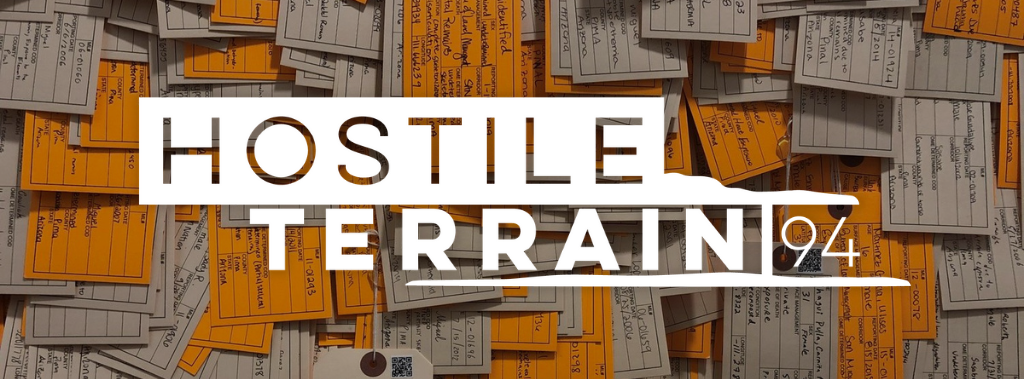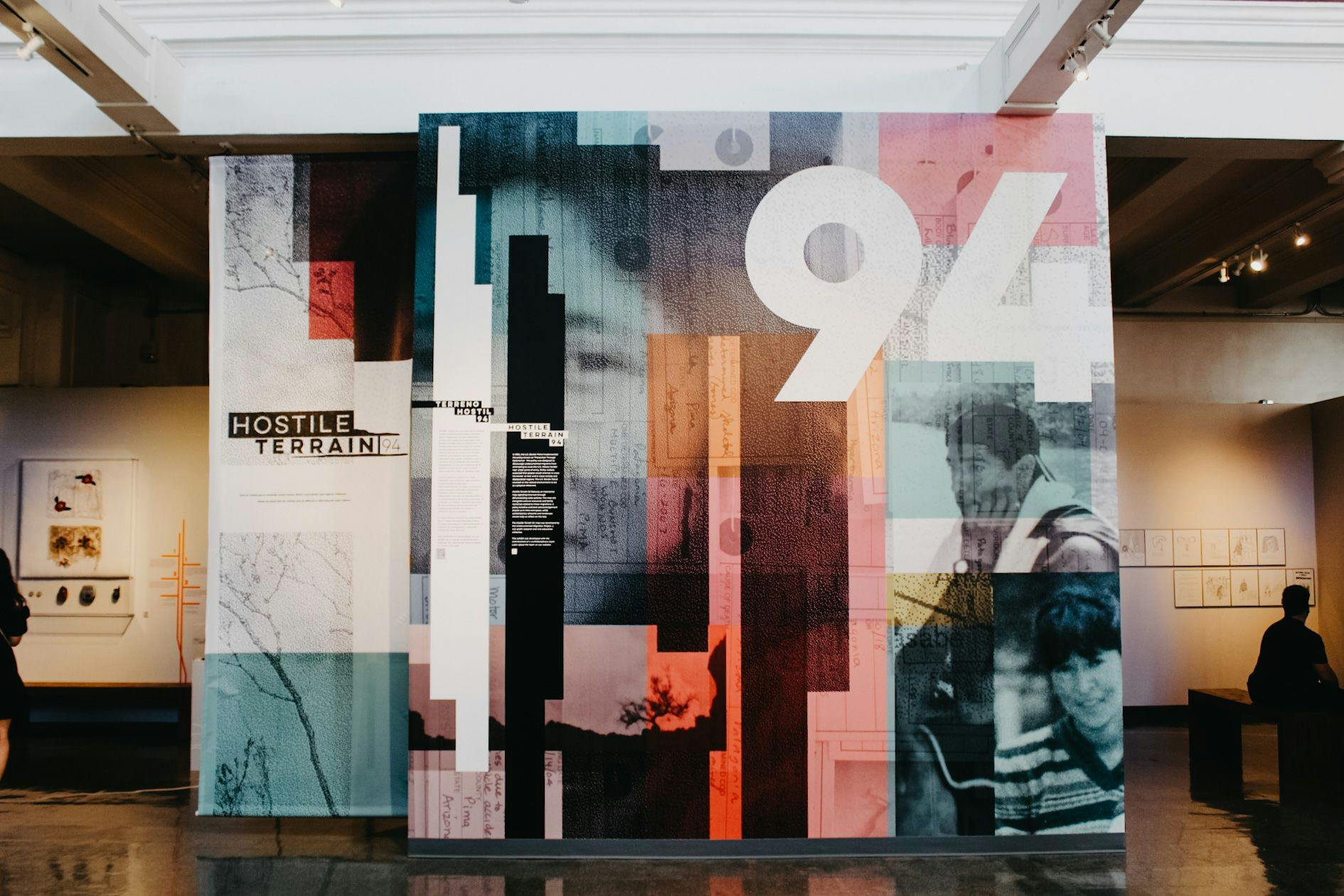The Museum is open daily from 10 a.m. to 5 p.m.
The Museum is open daily from 10 a.m. to 5 p.m. Plan Your Visit

About the Exhibit
Undocumented Migration Project x Museum of Us
Content Warning: Please be aware that the content of this exhibit may be difficult or disturbing for some visitors. This exhibit contains content related to migrant death and systemic violence.
Content on this webpage has been largely adapted from text by the Undocumented Migration Project.
In 1994, the United States Border Patrol formally implemented the immigration enforcement strategy known as “Prevention Through Deterrence.” This was a policy designed to discourage undocumented migrants from attempting to cross the U.S-Mexico border near urban ports of entry. Instead, closing off these historically frequented crossing points would funnel individuals through more remote and depopulated regions, such as the Sonoran Desert of Southern Arizona.
Since then, more than six million people have attempted to make the perilous journey. At least 3,200 people have died.
Hostile Terrain 94 is a participatory map installation created by the Undocumented Migration Project, a non-profit research and arts-education collective. This installation is intended to raise awareness about the realities of the U.S.–Mexico Border, focusing on the deaths that have been happening almost daily since 1994 as a direct result of the Border Patrol policy “Prevention Through Deterrence”.
In collaboration with the Museum of Us, Hostile Terrain 94 was further developed into a broader exhibit that illustrates the impacts of dehumanizing policies on human life.
In this exhibit, visitors will experience:
- An interactive map composed of over 3,200 handwritten, geolocated toe tags that represent migrants who have died trying to cross the Sonoran Desert of Arizona
- Cultural resources and family narratives related to these migrations
- A timeline of government policies that have produced conditions that force people to leave home and attempt to journey through hostile terrain
- Land acknowledgment, contemporary artworks, and landscape visuals that situate us in time and space, and help us reflect on the loss
As visitors reflect on the content of the exhibit, they are asked to consider, “What connections can we see throughout history? How does a legacy of exclusion continue to this day? What really makes this terrain so hostile?”
Exhibit Images

Collaborators
Hostile Terrain 94 is a participatory project developed by the Undocumented Migration Project.
The Undocumented Migration Project is a non-profit research and arts-education collective directed by UCLA anthropologist Jason De León. Find more information about the Undocumented Migration Project, Hostile Terrain 94’s development, and how to get involved on the Undocumented Migration Project website.
As it is exhibited throughout different host sites, each site has the invitation and opportunity to expand the conversation. The exhibition at The Museum of Us was developed by a multidisciplinary team of artists, scholars, and museum professionals. We are grateful for everyone’s work and dedication. We would like to highlight the way our communities interweave together to uplift each other. Through communal work we are able to build more loving futures.
We would like to thank the Undocumented Migration Project and the Colibrí Center for Human Rights team Austin Shipman, Perla Torres, Michael Wells, and Jason de León.
The Hostile Terrain 94 exhibition at the Museum of Us was co-developed by California Arts Council Administrators of Color Fellow Luisa Martínez Villalón, with the support and guidance of the Senior Director of Decolonizing Initiatives Brandie Macdonald, and Senior Director of Exhibitions and Operations Kate Clyde.
Graphics were developed by the Optika Moderna team, Sonya Calderon and David Reynoso, with creative insight from Winter Smiley, Luisa Martínez, and Kate Clyde.
The timeline mural was designed by Winter Smiley, based on research by Smithsonian Affiliates Intern Laura Rosado with assistance from Alfredo González Reynoso.
Our interactive land acknowledgment was developed with, and includes work from, the O’odham Anti Border Collective, Amrah Salomón J., Amber Lee Ortega, Napoleon Marrietta, Brooke Cena, and Brian de la Cerda.
The exhibition includes works by photographer, Michael Wells. The exhibition previously included works by artist Salvador de la Torre.
Financial support to the Museum of Us was provided by James & Frances Peterson, Jackie & Charlie Mann Fund of the Jewish Community Foundation, Kimberly Godwin in memory of Joel Gerber, and the California Endowment. Financial support to the Undocumented Migration Project was provided by Janice Deaton.
We would like to thank everyone who participated in the difficult work of filling out toe tags – this includes museum staff and board, community groups, and volunteers.
The Museum of Us recognizes that it sits on the unceded ancestral homeland of the Kumeyaay Nation. The Museum extends its respect and gratitude to the Kumeyaay peoples who have lived here for millennia.
The Museum is open daily, Monday through Sunday, from 10 a.m. to 5 p.m.
1350 El Prado, San Diego, CA 92101